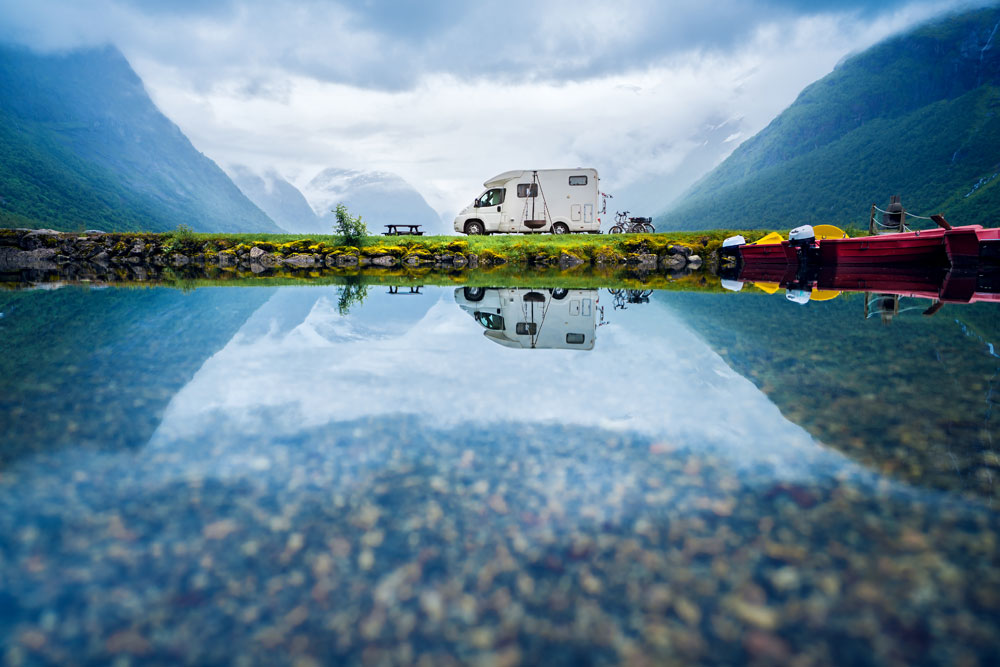When you live in an urban area, there are few things more exciting than seeing a wild animal in its natural habitat on the side of the road, as the case is for many of us.
Being one with nature and experiencing wildlife is part of why people love camping; to get out of the city and back to the wilderness where our wild brethren roam unhindered. To experience the sounds of nature instead of the din of the city is a blessing and shouldn’t be taken for granted.
However, those wild wanderers may not agree with you hanging out on their turf. There are a few things you should keep in mind when you’re camping with wildlife nearby.
Keep your distance
Despite what children’s movies often imply, wild animals don’t want to be your best friend or help you with housework. They’d prefer never to run into a human, but since that’s getting less and less likely with the increase in urban development, they’ll have to take what they can get. As you enter many campgrounds, there are signs indicating the wild animals that are in the area. The most common practice and advice is to avoid wild animals. BC Parks recommends keeping at least 30 metres from deer, moose, wild sheep, and elk. When it comes to predators, like bears, wolves, coyotes, and cougars, keep at least 100 metres away.
Stay in your car
Should you encounter wildlife up close and personal, it is best to stay inside your vehicle. If you come upon animals while travelling and notice them on the side of the road, remaining in your car is the safest option. If you’re lucky enough to have spotted a bear, a moose, or some other creature hanging out close to the road, don’t get out of your car to take a picture. You’re putting yourself in danger since you don’t know the mood of that animal. Approaching or encroaching in the space of a mother specifically could lead you into a world of trouble. Best to stay in your car, keep a safe distance, allow the animal to roam freely in nature and enjoy from your windows and the zoom lens on your camera.
Don’t feed them
As cute as that little squirrel looks sitting on a tree stump in your campsite or that little bird that landed on the picnic table, refrain from providing them with snacks. All too often, little critters like these have become accustomed to handouts from humans, which leads to them no longer fearing humans. If they don’t worry humans, there’s little stopping a larger predator, like a bear or a wolf, from deciding that the steak you’ve got on the grill would be an excellent dinner. Without fear from our wildlife, it becomes an issue as they will have no qualms about removing the creature trying to block them from their meal.
In providing a no-food policy for wild animals, it is important to keep food in coolers. You’ll also want to keep food in coolers with lids that snap closed, and often at night, it is best practice to store your coolers, BBQs and anything that might smell like food inside your RV or vehicle. Remove garbage from your campsite and provide a less appealing site for the animals around you or lock up in the RV—the scents of your food can draw a wild animal’s interest.
Show some respect
Remember, their territory is the land you enjoy a fire on, playing games and meeting with friends. Much in the same way, you’d want any visitors in your home to not leave it a disaster; the wildlife doesn’t deserve that either.
Always pack up your trash or dispose of it properly before you leave; your campsite should be as tidy or more so than when you found it.
Don’t leave any garbage on hiking trails; even food such as apple cores or banana peels remains. Their scent can lead an animal to the area and risk an encounter with other people, and there’s no telling if the animal will run or decide to fight.
Camp responsibly
Whether at a campground or deep in the woods, ensure you’re well-prepared should you encounter any four-legged visitors. Respect the wildlife, and you’ll have the best time.
At Vernon Recreational Products, we can get you into the RV that best suits your needs, protect you from possible predators, and fit into nature effortlessly. Call us at 1-833-293-3402 or visit us on-site, and we’ll do everything we can to prepare you for your summer camping adventure! Call today!









